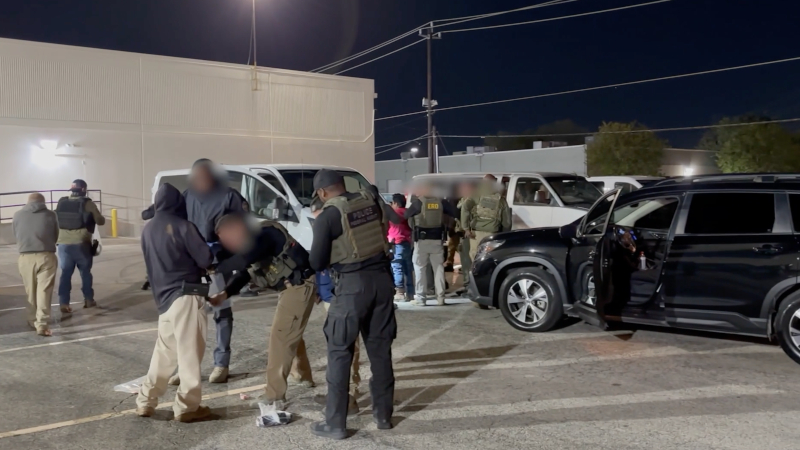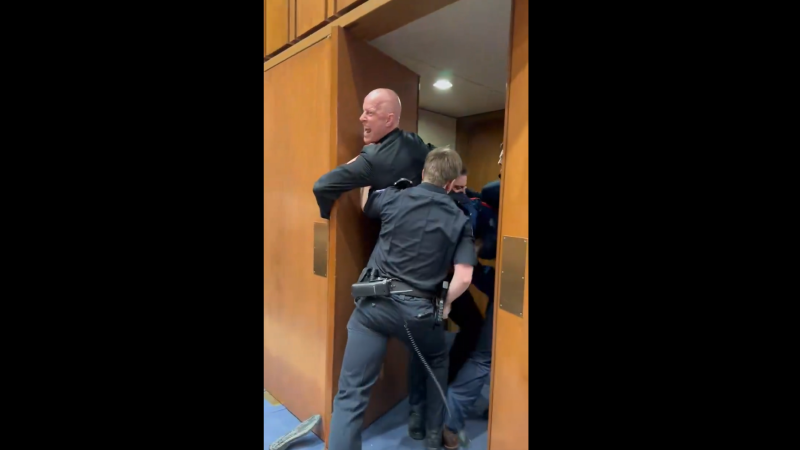
UN to set up “digital ID prison” for Burkinabes
The United Nations (UN), along with other globalist groups, is reportedly tracking and controlling refugees’ cash and aid relief by means of digital IDs in the West African nation of Burkina Faso.
Burkina Faso is a member of the UN and the Economic Community of West African States (ECOWAS). However, it was suspended from the ECOWAS in January 2022 following a military coup. Burkinabe people have suffered from violence coming from both the country’s soldiers and Islamist armed groups, leading to massive displacement of the population.
But this crisis has served as an opportunity for ECOWAS to ramp up its data collection effortsunder the disguise of addressing the matter. The UN has also stepped in, exploiting the humanitarian crisis as an opportunity to roll out its biometrics and digital ID agenda to refugees and displaced persons, and the communities that host them.
(Related: OBEY OR SUFFER: EU Chief Ursula von der Leyen calls for creation of GLOBAL DIGITAL ID SYSTEM.)
ECOWAS initially announced a $25 million initiative to aid internally displaced people, refugees, asylum seekers and communities affected by conflicts across the region. Of this amount, $9 million has been allocated for internally displaced people (IDPs), refugees and asylum seekers, as well as for the communities that host them. A separate $4 million has been reserved for humanitarian action to curb the devastating consequences of terrorism and mitigate the fallout of natural disasters.
However, there are scant details about how the $13 million would be spent. Details on what form or items the aid or assistance will take are likewise lacking. But according to Nigerian newspaper The Punch, ECOWAS emphasized the importance of prevention in its approach to crisis management, highlighting the implementation of a disaster reduction strategy and the utilization of tools such as the ECOWAS Early Warning and Response Network (ECOWARN).
According to ECOWAS, “ECOWARN’s systematized approach to data collection, threat assessment and reporting enables proactive decision-making to preserve regional stability.” But the Daily Expose pointed out that the network “has obviously completely failed to preserve regional stability in recent years and the emphasis is on data collection, it makes one wonder what data is being collected.”
UN to set up “digital ID prison” for Burkinabes
The Expose also elaborated on a separate plan by the Office of the UN High Commissioner for Refugees (UNHCR) about a digital ID strategy. A pamphlet about the strategy explained: “A legal identity for every individual is of utmost importance. However, a digital identity that [gives] access to the internet, mobile phones and related services is equally becoming important.”
It added that to achieve this end, the UNCHR will use biometrics and digital ID to track their cash and relief items and that this personal data will be stored on a centralized global UN database. “Refugees and other forcibly displaced persons will, for example, have relief accounts that show entitlements transparently and track cash and relief items that have been or will be made available to them,” the Expose added.
This endeavor would only be expedited by the Burkinabe government’s March 2024 announcement about Ouagadougou’s planned expansion of its digital public infrastructure. The $150 million expansion would be backed by both the International Monetary Fund (IMF) and the International Bank for Reconstruction and Development, the latter being part of the World Bank Group (WBG). Incidentally, both the IMF and the WBG are specialized agencies of the UN.
“The UNHCR is collecting, managing and storing biometrics and digital ID data of displaced persons and the communities that host them, and the [WBG] is increasing broadband connectivity to the same people,” the Expose ultimately remarked.
“Displaced people, who are most likely traumatized and own nothing except for what they were able to carry from their homes on their backs, are not prioritizing smartphones and broadband connectivity. They need food, clean water and shelter – which, it seems, relies on them using a digital ID issued by the UN.“




